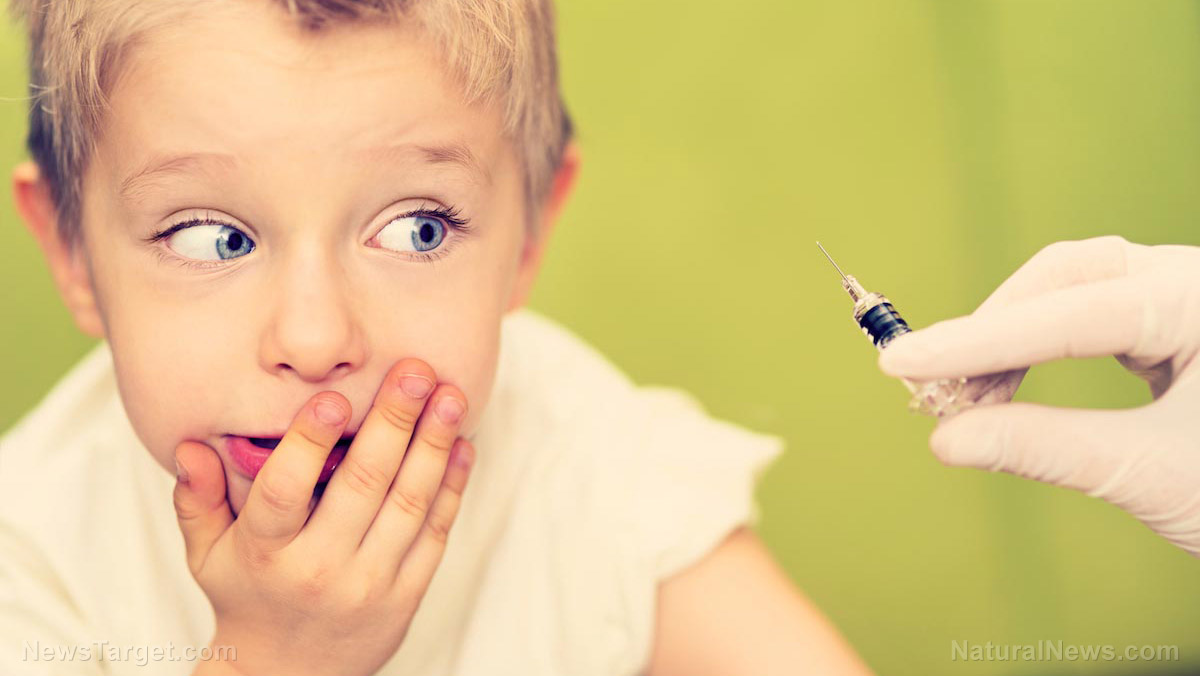 Parler
Parler Gab
Gab
For many children, the risks of COVID vaccines outweigh the benefits
Given the relatively low risk of young people experiencing severe COVID-19, this data suggests that the risks for many children of getting the vaccine outweigh the benefits provided. In fact, the Joint Committee on Vaccination and Immunisation (JCVI), which advises the UK government on its immunization programs, found that the individual health benefits from the vaccine were small in children aged 12 to 15 while acknowledging “considerable uncertainty regarding the magnitude of the potential harms.” As a result, the JCVI said that the benefits were simply too small to support a universal vaccination program among 12- to 15-year-olds who are otherwise healthy. This sentiment is echoed by Dr. Mike Yeadon, a former vice president and chief scientist of allergy and respiratory for Pfizer. He warned last year that children were 50 times more likely to be killed by the vaccine than by the virus that it aims to protect against. According to Yeadon, the mRNA gene technology that is used in vaccines like Pfizer’s to trigger the body to create spike proteins is a “fundamental problem” that has been plaguing scientists for years and can lead to health problems such as blood clots. Moreover, given the fact that young people generally do not experience the worst outcomes of the virus, he said that “it’s a crazy thing to vaccinate them with something that is actually 50 times more likely to kill them than the virus itself.” Of course, that calculation now appears to be an underestimate, if the ONS statistics are anything to go by. And while it’s certainly possible that some of these results are due to the fact that the vaccination campaign in the UK among youth began with those who had the highest mortality risk – and were therefore more at risk of dying anyway – one leading expert is now insisting that the UK is past the point where vaccinating young people will make a difference. University of East Anglia Professor of Medicine Paul Hunter said most children there have already had the disease and most did not become seriously ill. Speaking to BBC Radio 4, he said that infection rates are now falling very quickly among children, adding: “We haven’t seen that vaccines have actually done a huge amount to stop these [school] interruptions, so I think the benefits are marginal, and it’s probably too late because most kids have already had Omicron.” Sources for this article include: DailyExpose.UK MSN.comSteve Quayle: Truth about aliens and destruction of human race will be revealed
By Kevin Hughes // Share
Deborah Birx hid covid info from Trump, altered CDC guidelines without approval
By Ethan Huff // Share
Germany’s birth rate improbably falls by 11% in the first quarter of 2022
By Lance D Johnson // Share
By Mary Villareal // Share
Common signs and symptoms of magnesium deficiency
By Olivia Cook // Share
Governments continue to obscure COVID-19 vaccine data amid rising concerns over excess deaths
By patricklewis // Share
Tech giant Microsoft backs EXTINCTION with its support of carbon capture programs
By ramontomeydw // Share
Germany to resume arms exports to Israel despite repeated ceasefire violations
By isabelle // Share










